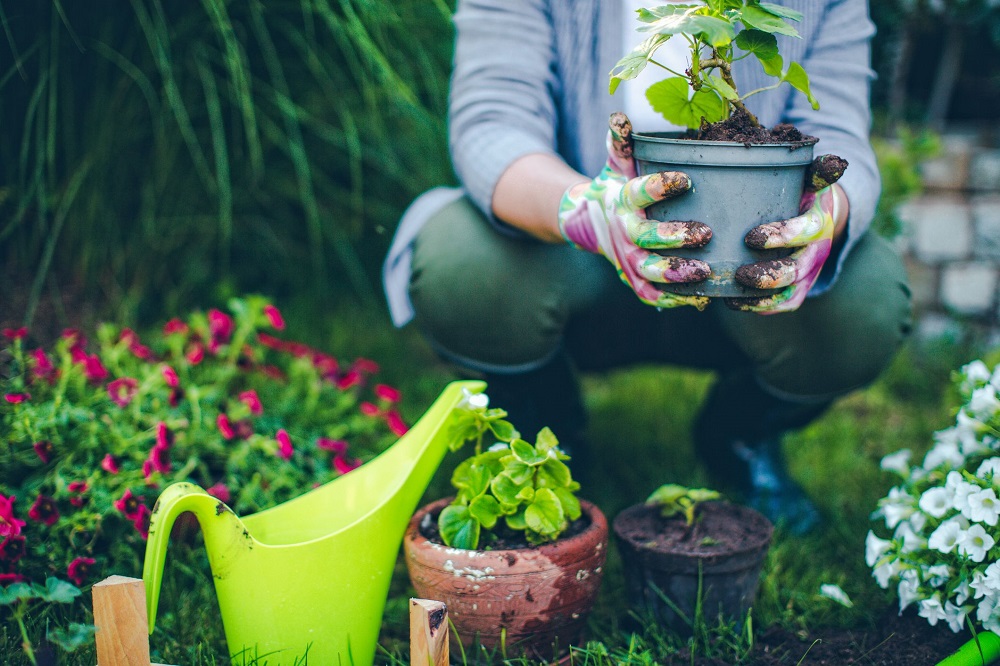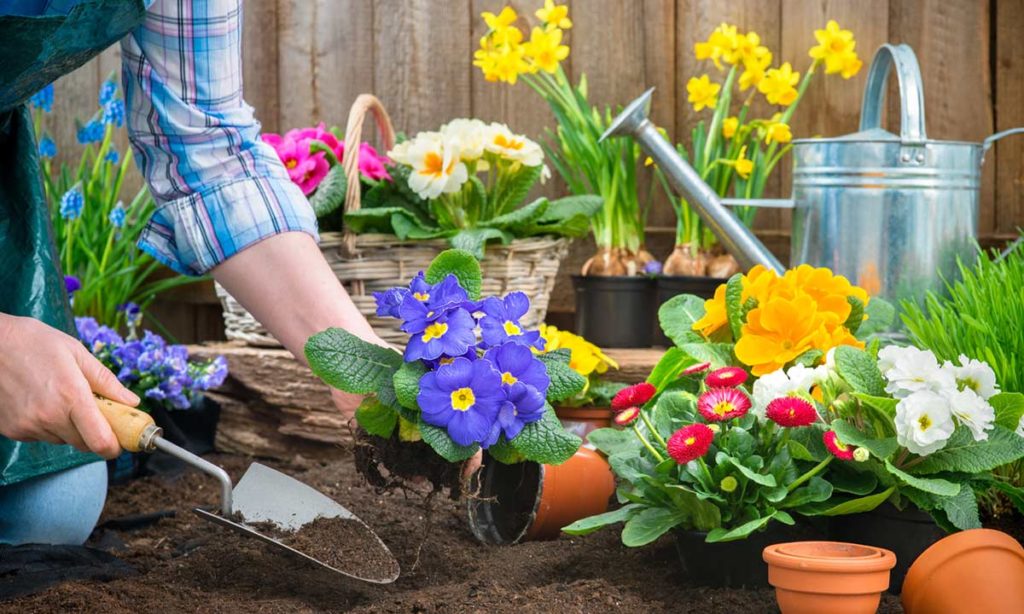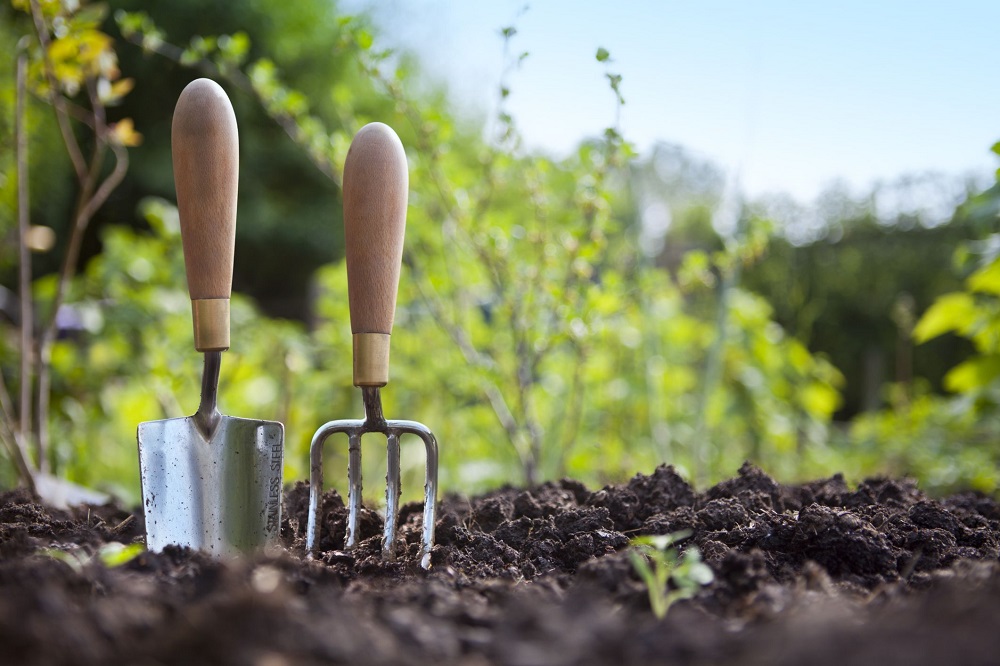Whether you have always had a green thumb, or you can’t even keep a patch of grass that color, we’re always looking for better ways to keep our gardens healthy. The average hobby gardener spends 1.5 to 2.5 hours per week gardening—this means that time is at a premium—and techniques and tools that can save time while keeping plants healthy will be preferred over everything else.
Five simple tips to keep any garden healthy include keeping an eye on things, making a watering plan, cleaning tools, using the right mulch, and not overcrowding plants. Keeping these considerations in mind when tending to a garden should go a long way in keeping it verdant.
If you’d like to know more about these simple tips and how to best implement them be sure to read on as we will dive into the details of all five below.
Watch Your Garden Grow
Watching plants grow might sound to some like a definition of insanity, but that isn’t what we mean here. In short, watching your garden grow means keeping an eye on things. How are your tulips looking compared to last week? Does the ivy need a trim? What is getting too much, or too little, water? Comparison with your previous observations is the only way you’ll ever know if your garden is healthy or not.
If it helps to take notes, do so. This can either be in a garden planner or digitally. Feel free to take photos to document your notes. These records can be invaluable when planning over the winter and trying to figure out what worked in the garden this year and why.

Come Up with a Watering Plan
After access to the right amount of sunshine, nothing is more important than getting the right amount of water to each plant. To aid in doing so it can often help to come up with a watering plan. This can be as simple as a calendar with the proposed water dates for plants on it. Just be sure to keep track of when it rains so you don’t accidentally over water!
Clean Gardening Tools After Every Use
Plants can get sick just like people and one of the most common methods of transmission is via contaminated tools. One simple way to prevent against this is by washing off any gardening implements before using them around different plants. For example, once you have pruned one rose bush, to be safe, rinse your sheers and dry them before moving on to the next bush. This is also a good way to make sure that your gardening equipment stays clean and in working order after every use.
Use the Right Mulch
One of the most effective tools gardeners have in protecting their gardens from disease and pests is quality mulch. This is because mulch not only can act as a protective barrier but also because mulch can provide good drainage and additional nutrients. This doesn’t mean that mulching is as easy as ordering a bag online and haphazardly spreading it around some tree roots. Making sure the right mulch is being used is also of vital importance.
This is why using a local mulch supplier often makes the most sense, as they will best be able to assess your garden’s needs thanks to their knowledge of the area. For example, a gardener looking for mulch supply and delivery in Fort Ashby, WV will have very different needs for mulch when compared to someone looking for mulch in Dallas, TX.

Don’t Overcrowd Plants
In general, the planting guidelines found on most packaging are overly conservative. Placing plants closer together won’t keep anything from thriving if there is still some appropriate spacing throughout the beds. This is best accomplished by making a rough plan of the garden and desired plants before anything else. When drawing up the plan, be sure to pay attention to each plant and its needs in terms of sunshine and water, as these will largely determine spacing.
Once a plan is in place, everything becomes easier from the gardener’s perspective. All that is required is procuring the flowers and planting them. To double-check that the plan is correct, place the potted plants in their spaces around the garden and check to make sure everything looks correct before digging them in.
Don’t Forget to Have Fun!
And there you have it, five simple tips that any gardener can use to keep their own allotment as healthy as possible. While some tips are straightforward and easy to carry out, such as keeping implements clean, others will take much more consideration. It can be hard work but try not to be discouraged and don’t hesitate to reach out with any questions or comments you may have. As always, thanks for reading!






